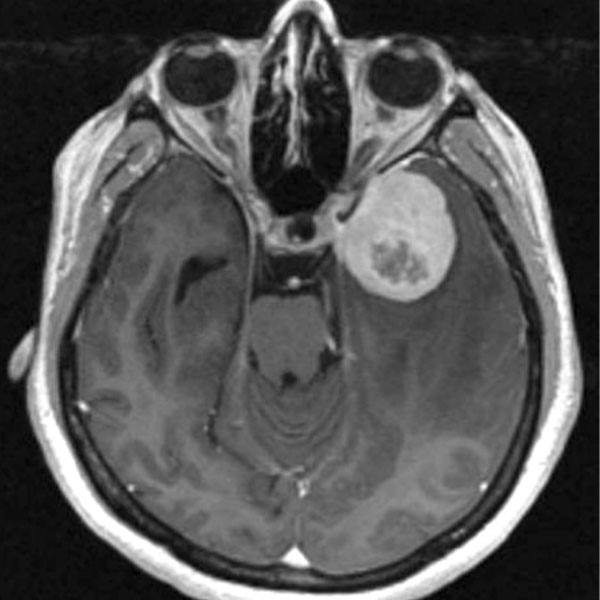-
Mayo Clinic Q and A: Reducing your risk of colon cancer recurrence
 DEAR MAYO CLINIC: Are there things that I can do to help prevent a recurrence of colon cancer?
DEAR MAYO CLINIC: Are there things that I can do to help prevent a recurrence of colon cancer?
ANSWER: The rate of colorectal cancer survival five years after initial diagnosis has been on the rise. But with survival comes a new risk — that of recurrence. Colorectal cancer recurrence within five years after treatment ends is in the range of 7 to 42 percent, depending on the stage of the cancer.
The risk of cancer recurrence is understandably a common source of worry and anxiety for many who have had this cancer. Although recurrence can’t be eliminated entirely, steps can be taken to reduce risk and increase the chances that any recurrence would be detected early.
The exact details of programs for surveillance will vary based on your health care provider’s recommendations. In general, Mayo Clinic oncologists follow three main steps.
The first step is a follow-up colonoscopy. After surgery to remove a colon or rectal cancer, a follow-up colonoscopy generally is performed one year later. If that result is normal, follow-up intervals of three to five years often are recommended, depending on the results. There are numerous factors that may result in a modified schedule.
Due to the potential for recurrence in people treated for rectal cancer, periodic examination of the rectum may be warranted in addition to the colonoscopy recommendations.
The second step is a blood test for carcinoembryonic antigen. Elevated carcinoembryonic antigen levels in blood can be a sign of several cancers, including colorectal cancer. After successful removal of a colorectal cancer, carcinoembryonic antigen levels should return to a more normal level and typically within about six weeks. Testing for carcinoembryonic antigen generally is performed every three to six months for two years and then every six months for three additional years.
The third step is a CT scan. If the cancer was aggressive or advanced, some form of imaging, such as a CT scan of your chest, abdomen and pelvis, may be performed at least annually for at least three years to look for signs of recurring cancer. These guidelines continuously evolve and may include taking a CT scan of the abdomen and pelvis every six to 12 months for colon and rectal cancers. Since rectal cancers often spread to the lungs, a CT chest scan may be performed at least every six months for the first two or three years. In addition, a CT scan of the abdomen and pelvis may be performed at least annually for colon cancers.
There’s no certain way to stop cancer from recurring. However, there are steps that are thought to reduce colorectal cancer risk specifically. The first is maintaining a healthy weight. There’s increasing evidence that being overweight increases the risk of colorectal cancer recurrence. Work with your health care provider to develop a plan to lose weight if you’re overweight.
Eliminate or greatly reduce foods associated with colorectal cancer recurrence, such as red and processed meats, refined and heavily processed grains, and a high intake of sugar, and adopt a diet with a foundation of minimally processed plant foods. These include fruits, vegetables, beans, nuts and whole grains. Add lean protein sources, and consume predominantly healthy fats, such as olive oil. Moderate coffee consumption is OK and may provide a slight risk-reduction benefit. In particular, consuming at least a couple of servings weekly of tree nuts, such as almonds and walnuts, has been associated with significantly reducing the risk of recurrence and the risk of death of colorectal cancer.
Part of your healthy eating should include adopting a high-fiber diet. In a recent eight-year study, increasing dietary fiber after a colorectal cancer diagnosis reduced the risk of dying of the disease by 18 percent for every 5 grams of increase in daily fiber intake. Whole grains appeared to provide the most benefit.
Another step your health care provider may recommend is taking low-dose aspirin. Studies have shown that daily and prolonged intake of aspirin appears to play a protective role against developing colorectal cancer and also may reduce recurrence of polyps and cancer within the colon and rectum. In people who are at low risk of developing stomach bleeding from aspirin, low-dose aspirin often is recommended for those 50 to 69 who have at least a 10-year life expectancy.
If you smoke, quit. Research shows that long-term cigarette smoking is a risk factor for colorectal polyps and cancer. Furthermore, smoking may be associated with worse cancer-related outcomes in people who have had colorectal cancer.
Finally, aim for 30 to 60 minutes of moderately intense exercise most days. A sedentary lifestyle increases cancer risk in general, and exercise is an important part of any plan to prevent cancer and cancer recurrence. This may not be realistic at first if you are fatigued or deconditioned, or have side effects of cancer treatment. Still, ask for help in developing an exercise plan that gradually increases your fitness. Exercise often contributes to better physical function, reduced fatigue and improved quality of life in people who have had cancer. (adapted from Mayo Clinic Health Letter) — Dr. Pashtoon Kasi, @pashtoonkasi, Hematology/Oncology, Mayo Clinic, Jacksonville, Florida
****************************
Related Articles
- Mayo Clinic Q and A: Preventing colon cancer with screening, early detection published 2/26/19
- Living With Cancer: When can you stop colon cancer screening? published 12/14/18
- Living With Cancer: Understanding colon cancer published 3/9/18
- Sharing Mayo Clinic: Aggressive treatment turns tide in fighting colon cancer published 6/4/17
- Mayo Clinic Minute: 3 myths about colon cancer published 3/20/17
- Housecall: Colon cancer screening — know your options published 3/20/17
- Living With Cancer: Colon cancer treatment published 3/10/17







